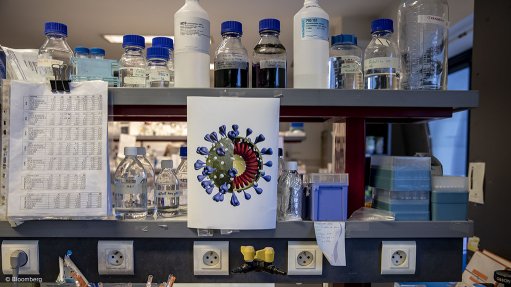
Photo by: Bloomberg
The University of the Witwatersrand (Wits) said on Monday it was encouraged by the results of the coronavirus (Covid-19) vaccine jointly-developed by the University of Oxford and British drug group AstraZeneca.
An analysis of the Phase 3 arms of the UK and Brazil studies show a 70.4% efficacy, with data from two different dosing regimens, one with a 90% vaccine efficacy and the other with a 62% efficacy.
Wits, which leads the South Africa trail of the ChAdOx1 Covid-19 vaccine developed by the University of Oxford, says the AstraZeneca/Oxford vaccine could reduce virus transmission from an observed reduction in asymptomatic infections.
The vaccine could also be stored at fridge temperature – 2 oC to 8 oC – and distributed using existing logistics.
To ensure equitable global access, more than ten countries are undertaking large scale manufacturing and the cost of the vaccine is expected to be much cheaper than other efficacious vaccines.
Wits research unit Vaccines and Infectious Diseases Analytics executive director Professor Shabir Madhi said the results from this study add further hope that accessing vaccines to fight the Covid-19 pandemic is fast becoming a reality.
“The results from this study are intriguing, in that a dose-sparing regimen may inadvertently end up being more protective. This has implications not only for the cost of the vaccine, but also how many more people could possibly be vaccinated in the near future when vaccine supply is likely to be constrained,” he said.
While the results of the AstraZeneca/Oxford vaccine do not include data from the South African participants, Madhi says similar results could be expected in the local trial.
Oxford Vaccine Group director and Oxford Vaccine Trial chief investigator Professor Andrew Pollard thanked trial volunteers and worldwide researchers following the announcement.
“These findings show that we have an effective vaccine that will save many lives. Excitingly, we’ve found that one of our dosing regimens may be around 90% effective and if this dosing regime is used, more people could be vaccinated with planned vaccine supply,” he said.